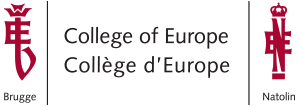About WEASA
A quick overview:
WEASA (short for the Warsaw Euro-Atlantic Summer Academy) is an annual summer school for mid-career professionals from the Eastern Partnership and the Western Balkans. Each year, a wide range of policy analysts, experts, advisers, civil servants, NGO professionals, and journalists, take part in the academy.
WEASA was established to present and debate the political, social and economic foundations of modern democracies in the European Union and the transatlantic community and to further promote the values of freedom, pluralism and peace.
WEASA goes in line with the Eastern Partnership initiative that aims at accelerating political association, deepening economic integration, enhancing mobility of citizens and strengthening sector cooperation between the European Union and Eastern Europe.
In previous years, WEASA examined a variety of topics – from energy security to regional development. WEASA 2017 looked at how digital technology has transformed our thinking on social, political, economic and security issues. Consequently, we have decided to strengthen our focus specifically on digital affairs for the foreseeable future.
Founders:
WEASA was founded in partnership by:
- The College of Europe, Natolin Campus
- The German Marshall Fund of the United States (GMF)
- The Polish-American Freedom Foundation
Speakers:
Each year, we invite a group of leading academics, practitioners, and/or analysts to lead the WEASA sessions. They frequently come from leading European and US-based think tanks and institutions and also often include high-level public officials. Our speakers in past years have included prominent figures such as Madeleine Albright and Leszek Balcerowicz.
Participants and eligibility:
WEASA is addressed to participants coming from a cross-section of society and specifically from public administration, academia, think tanks, media and civil society organizations.
We welcome applicants who are citizens and residents of the Eastern Partnership countries and the Western Balkan countries as well as Poland.
We typically look for mid-career professionals (usually those with at least five years of professional experience), who work as policy analysts, experts, advisers, civil servants, journalists, private sector specialists and in NGOs and are interested in WEASA-related topics.
Dates and location:
WEASA is held annually in July. It is hosted by the Natolin Campus of the College of Europe (Warsaw, Poland).
Language:
All WEASA sessions are held in English.
Expenses:
The organizers cover all reasonable travel expenses and provide room and board for all WEASA participants.



